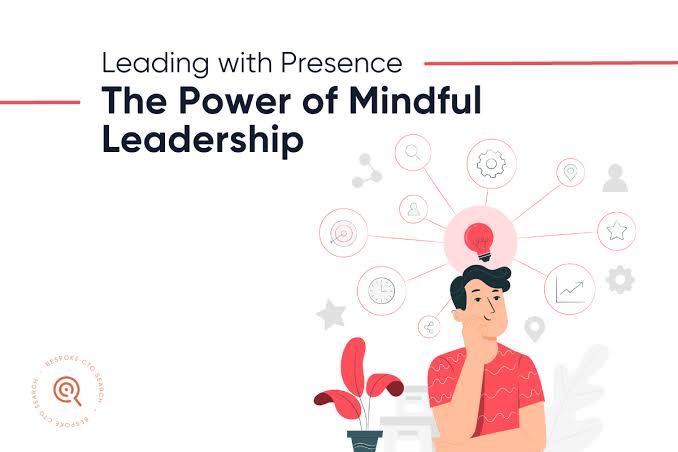Mindful leadership is the practice of leading with presence, intention, and awareness. Rather than operating from a place of stress or automatic reaction, mindful leaders take a pause, observe the bigger picture, and respond with clarity and purpose. In today’s ever-evolving world, this type of leadership has emerged as a powerful antidote to burnout, disconnection, and reactive decision-making.
Unlike traditional leadership models that may focus heavily on metrics and productivity, mindful leadership emphasizes emotional intelligence, authentic communication, and values-based decision-making. It’s about leading by example, fostering trust, and cultivating environments where teams can thrive not just professionally, but personally as well.
Why Mindfulness Matters in Leadership
The core strength of mindfulness in leadership lies in its ability to sharpen self-awareness. Leaders who regularly engage in mindfulness practices tend to be more emotionally stable, less reactive to conflict, and more attuned to the needs of their teams. This heightened awareness leads to better decision-making, especially in high-pressure or uncertain situations.
Mindful leaders are also more capable of managing their own stress, which in turn helps them lead with calmness and clarity. In emotionally charged environments, this kind of composure can inspire confidence and foster a greater sense of psychological safety among employees.
Key Traits of a Mindful Leader
- Presence – Mindful leaders are fully engaged in the moment. They listen without distraction and make space for meaningful dialogue.
- Emotional Intelligence – They recognize and regulate their emotions while also empathizing with others.
- Purpose-Driven – They align their leadership with core values and ensure that their decisions reflect both short-term needs and long-term integrity.
- Compassionate – Rather than leading with fear or authority alone, mindful leaders lead with care, curiosity, and understanding.
- Reflective – They regularly take time to reflect on outcomes, challenges, and how they are impacting others.
Each of these traits contributes to a leadership style that prioritizes connection, clarity, and sustainable growth.
The Benefits of Developing Mindful Leadership
Mindful leadership development offers significant benefits for individuals and organizations alike. For leaders, it leads to reduced stress, clearer focus, and improved relationships both at work and in their personal lives. For teams, it creates healthier dynamics, increased motivation, and greater engagement.
Companies that foster mindful leadership often enjoy:
- Lower turnover rates due to improved job satisfaction.
- Enhanced collaboration as trust and communication increase.
- Greater innovation as psychological safety allows for risk-taking and new ideas.
- Resilience during times of transition or crisis.
Mindful leadership also plays a crucial role in building inclusive cultures. By being fully present and aware, leaders are more likely to recognize bias, listen to diverse voices, and respond equitably.
Practices That Strengthen Mindful Leadership
- Daily Mindfulness Meditation – Just 10–15 minutes of focused breathing or awareness meditation can help leaders reset their mental space and begin the day with clarity.
- Journaling for Reflection – Writing down thoughts, feelings, and observations at the end of the day supports self-evaluation and growth.
- Mindful Listening Exercises – Practicing undivided attention in conversations helps build trust and improves communication.
- Intentional Pauses Before Decision-Making – Taking a moment to breathe and reflect before responding to a challenge prevents hasty decisions.
- Walking or Movement Meditation – Gentle mindful movement helps regulate the nervous system and encourages creativity during breaks.
These practices are not only simple but also adaptable to any leadership environment, from corporate boardrooms to nonprofit teams and startups.
The Role of Mindfulness in Conflict Resolution
Conflict is inevitable in any leadership role. What distinguishes mindful leaders is how they approach and resolve conflict. Instead of defaulting to blame or defensiveness, mindful leaders practice patience and non-judgment. They focus on understanding rather than controlling, which opens up pathways to genuine resolution.
This approach transforms conflict from a threat into a growth opportunity. Team members are more likely to express concerns early, knowing their voices will be heard with openness rather than judgment.
Building a Culture of Mindful Leadership
Organizations can support mindful leadership by weaving it into the fabric of their culture. This includes offering regular training sessions, encouraging leaders to take mental health breaks, creating safe spaces for reflection, and integrating mindfulness into leadership evaluations.
Mentorship programs that model mindful behavior, leadership retreats that include wellness and mindfulness training, and feedback mechanisms that reward empathy and presence over speed and force can all contribute to cultivating mindful leaders at every level.
Mindful Leadership in a Remote or Hybrid Era
As work environments shift to hybrid and remote structures, mindfulness becomes even more important. Digital fatigue, blurred work-life boundaries, and isolation are common stressors. Mindful leaders can bring back a sense of connection by being intentional about check-ins, leading meetings with purpose, and fostering digital empathy.
In virtual spaces, simple practices like opening a meeting with a moment of silence, actively listening without multitasking, or offering appreciation can go a long way in maintaining cohesion and trust across teams.
Conclusion
Mindful leadership is not about perfection or having all the answers. It is about showing up with intention, responding with clarity, and cultivating environments where people can feel seen, heard, and supported. In today’s fast-moving world, this leadership style stands out for its depth, authenticity, and long-term impact.
By embracing mindfulness, leaders become not just better managers of people, but better stewards of purpose, integrity, and positive transformation. Whether you’re leading a team of five or five thousand, developing mindful leadership skills can be the key to meaningful success—for yourself and those you serve.



